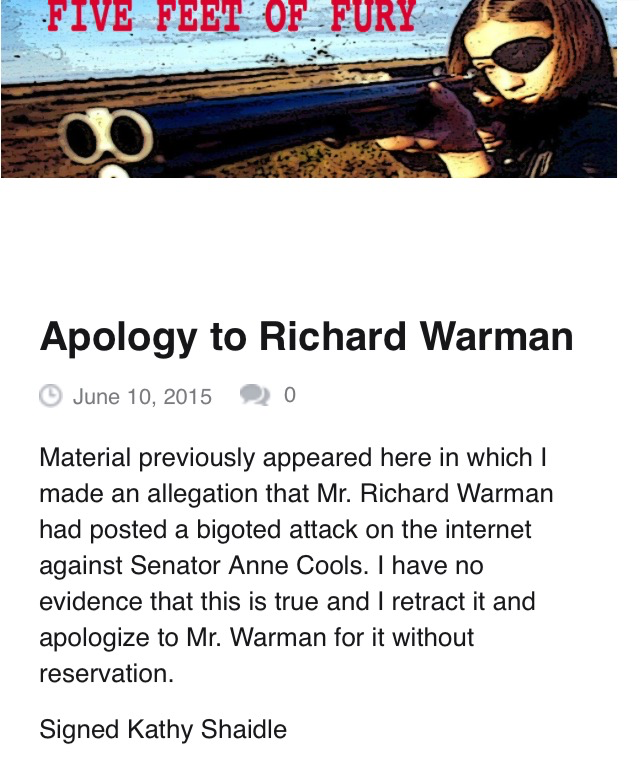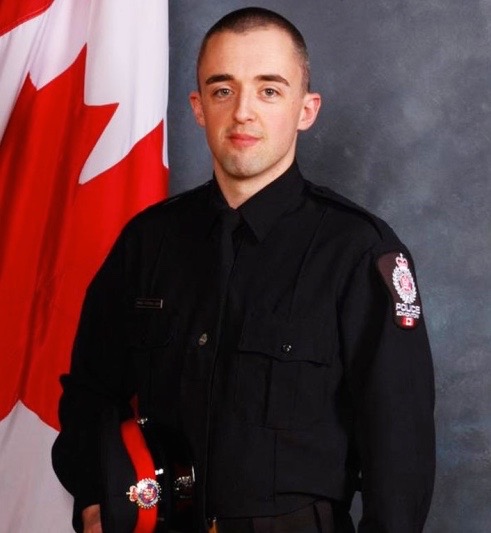New SFH! New new new!
New SFH look! New SFH line up! New SFH songs! Same tired old bastards, trying to sound relevant and get their own tour bus!
Headlines that come back to haunt you
In this week’s Hill Times: murdered aboriginal women deserve justice – not a judicial inquiry
It happens so often, you can almost set your watch by it.
Someone in Ottawa has a press conference, or asks a question in the House of Commons, or responds to an important bit of news. And, too often, they demand an inquiry or a royal commission or some sort of a judicial probe into malfeasance and misfeasance. Happens all the time.
It happened again, last week, when the Truth and Reconciliation Commission released a well-considered report about the abomination that was Canada’s residential school system. The report — which was only a summary, and a precursor to a six-volume release that will come later — offered up nearly 100 recommendations. One of them was an inquiry into the hundreds of cases of murdered and missing aboriginal women.
The demand for an inquiry was well-intentioned. In Canada, an extraordinary number of indigenous women have simply disappeared, or have been killed, and it keeps happening. No one seems to know what to do about it.
Thus, the commission’s demand that there be an inquiry. It sounded like a not-unreasonable request. Should we do it?
We shouldn’t, for these three reasons.
First, the murders and disappearances of these women are crimes. They deserve to be investigated as such. Police agencies, in every region of this country, should be given the resources — and the motivation — to investigate and aggressively prosecute every one of those crimes. That is what we do, generally, when the victim is white.
Those women — those victims — deserve justice, in the form of the successful prosecution of the men who did them harm. Justice is not obtained with the release of a report by a retired judge who has the power only to issue reports.
Second, judicial inquiries and commissions have a tendency to interfere with the work the police do. They either delay investigations and prosecutions, or they trample on the constitutional rights of individuals.
That is what happened with the Gomery Commission, where the self-described “Westmount hobby farmer” wildly exceeded his mandate and his budget — and seemed to be much more interested in flattering newspaper profiles than in obtaining the truth.
In the end, after the expenditure of $200-million on the Gomery farce, the reputations of many innocent political people had been muddied. But then the Federal Court of Canada overturned many of Gomery’s judicial smears of prominent Liberals, for showing bias or lack of procedural fairness.
Even now, so many years later, not a single elected person — not one — has ever been sent to jail in the sponsorship mess. Just some ad men, and a bureaucrat. Did Gomery’s preening turn before the cameras make it more difficult for the police to do their job? It seems likely.
So, last Fall, when there were again calls for an inquiry into missing and murdered aboriginal women, the head of the Canadian Association of Chiefs of Police, Clive Weighill, suggested such an inquiry could prevent justice, not assist it. Interviewed during the organization’s annual meeting, Weighill said the Chiefs would not support such a MMAW inquiry. A national inquiry may “shed some light,” he said.
But the Chiefs were opposed to an inquiry because it could impede police investigations and “delay action.”
The concern about constitutional rights isn’t imaginary — the issue has been decided in the highest court in the land, too.
In 1990, the Supreme Court of Canada terminated Ontario’s Patti Starr inquiry, after lawyers argued it was trampling on the rights of the individuals.
The court said that inquiry had become a “substitute police investigation” — and it had therefore violated the Constitution.
Ruled the high court: “The inquiry process cannot be used to circumvent the federally prescribed criminal procedure. It is coercive and quite incompatible with our notion of justice in the investigation of a particular crime and the determination of actual or probable criminal or civil responsibility.”
Third: it’s true that the job of opposition politicians is to oppose. Apart from demanding ministerial resignations, all that is often available to them is the demand for a judicial inquiry.
But they do it too much. They do it too often. It therefore engenders cynicism, and — on those occasions when their wishes are granted — it further denudes the faith of citizens in democratic institutions. They accordingly vote less, and they turn away when important things are happening — such as the astonishing number of aboriginal women who are being murdered or disappeared in this country.
Ask yourself: does the grieving family of any of those women — or, in fact, any loved one in the case of any violent crime — feel that justice is served by a report, unread, and gathering dust on a shelf at the National Archives?
There are instances, of course, where such commissions do some good. That was the case in South Africa, after the collapse of apartheid. That was the case with the McDonald Commission, investigating wrongdoing by the RCMP.
But those are the exceptions. Most of the time, inquiries and commissions serve only to persuade the politicians that they have done something. When, in fact, they haven’t. They have only enriched some lawyers, and left citizens feeling even more powerless than they were before.
I am the father of an aboriginal girl. I do not want to ever contemplate that harm could befall her, or her friends.
But if it did, I would want a thorough police investigation, and a successful prosecution of the man who did wrong.
Not a forgotten report, gathering dust somewhere, and a politician feeling — falsely — that he has actually done something good.
news@hilltimes.com
June 9, 2015: a great day for ethics in Canada
Dear politicians: Next time a CBC big wig lectures you about ethics?
Punk is dead
Can anyone help in finding this creep? (Updated)
This was placed in comments in response to my post about the Edmonton shooting and the Freemen connection:
It is disgusting and – given the calls for violence – something that should be investigated.
All I can find is that this creep is a Shaw customer in Lethbridge (on Sixteenth Avenue?). The “freecandyvan99” email may actually be valid – I sent a test to it, and it did not immediately bounce back.
Anyone care to help on this one? This creep is potentially dangerous, and deserves to be checked out.
UPDATE: A reporter tells me YouTube and Google+ make oblique reference to one James Ritchie. But I emphasize that is a very common name.
The Edmonton tragedy, and Freemen on the land
In 1996, I was in Montana when the Freemen were in full revolt. They effectively paralyzed the entire state for weeks in an armed standoff.
Essentially, these guys (they are almost always guys) believe that they are “sovereigns” and that statute law – criminal law, by-laws, etc. – are contracts that they can opt out of. They believe they are only subject to “natural law.” Thus, their fixation on property and gun rights, and their disdain for human rights laws, environmental and animal protection, and so on. They’re nuts.
In Ontario, a milder version of them is found in the Ontario Landowners, an anti-government group of loons who have essentially taken over a vast swath of the Ontario PC party. In the U.S., the most extreme variant is the Posse Comitatus, who are avowedly anti-Semitic, racist and violent.
With a few notable exceptions, Canadian Freemen had in recent years contented themselves with tying up the courts with what one judge accurately termed OPCAs – Organised Pseudolegal Commercial Arguments. Until Edmonton last night.
Let’s remember Edmonton Hate Crimes Unit officer Dan Woodall, killed last night by a man reported to be Freeman Norman Raddatz. Woodall was a hero, and he and his family deserve our thanks, from coast to coast.
Boredom and politics
Here’s the Buzzcocks (who are here in Tee Dot in mere days!) doing their best-ever tune, from the Spiral Scratch EP. Devoto’s vocal was better than Pete’s, but the perfection of this version is why SFH needs to play it, too.
Now, what has this got to do with politics, you ask? Why, everything. Because, in just a few short days, legislatures national and provincial shalt rise for the Summer, and here’s what you will be thinking about politics:
Nothing.
Zero, zippo, zilch. Everyone will shortly be up to their arses in balconies and barbecues, and they (a) won’t care about politics and (b) won’t want to hear from any politicians.
That’s why incumbents always edge upwards during the Summertime, folks: the legislature ain’t sitting, politicians are neither seen nor heard, and everyone is therefore happy. Ever wonder, perchance, why there are so many elections in the Fall? Exactly.
Political boredom is already happening, too: columnists and editorialists are struggling, mightily, to find something to write about. And, soon, enough there will be nothing to write about. (The Senate is corrupt and waste of money? Not exactly front page news, Virginia.)
Here’s what all this political boredom means for the three main political parties:
- For the NDP, it’s awesome. They are increasingly popular at precisely the right moment, and they haven’t had to spend much of their war chest to achieve it.
- For the Tories, it’s similarly swell. They are competitive in every region, and they are about to start sending out tax cut cheques to Middle Canada.
- For the Liberals, it is a disaster. They needed to define Trudeau, and get some policy in the window: they did neither. And, now, no one is going to be paying attention to them until the Fall – when it is likely too late.
Boredom, folks. It is upon us. And for two of the three political options, it’s a good thing.






